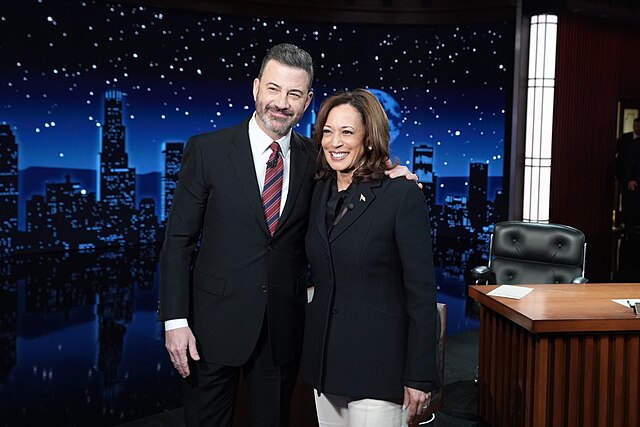Melanie DePriester
Staff Writer
On Sept. 15, Jimmy Kimmel found himself tangled in controversy after making remarks about the death of political activist Charlie Kirk. This action resulted in significant public backlash, along with calls to boycott Disney and its associated networks. Consequently, Kimmel’s show was pulled from the air before being reinstated just days later on Sept. 23, accompanied by an apology. This incident raises critical questions about the boundaries of free speech, especially in the realm of broadcast media.
At the heart of the situation is the concept of the First Amendment which among many other freedoms includes freedom of speech. While Kimmel’s comments may have struck many as insensitive or inappropriate, should that be considered grounds for pulling the show from airwaves?
I believe everyone, especially public figures, should have the right to express their thoughts, regardless of the platform. If we start censoring voices based on occasional missteps or controversial opinions, we risk stifling honest discussions and relegating the media to a dull environment devoid of diverse viewpoints.

“I think that everyone should be able to say what they want without fear of people encroaching on that, or being fired for that reason,” Mia Daniel, a performance major, said.
However, there is a distinct line between expressing an opinion and making a comment that could be perceived as degrading, threatening or harmful.
We should acknowledge that certain topics, particularly those involving recent tragedies, require a more sensitive choice of words. It is crucial that we foster an environment where differing beliefs can coexist, provided they do not endanger or threaten others.
“I personally think there shouldn’t be any regulation as long as no one’s blatantly making threats at other people on the air, that’s obviously another issue,” Daniel said.
Kimmel’s return to television is a relief to many of his fans, as he offers a unique perspective that resonates with a broad audience. Losing him would not only impact his viewers but could also affect other hosts as he could be the first domino that is knocked down leading to the downfall of other late night hosts, such as Jimmy Fallon, Seth Meyers and Stephen Colbert. In fact, Meyers and Colbert showed a united front during Kimmel’s suspension by appearing on each other’s late night shows, expressing their mutual disdain for Trump and showing support for Kimmel.
Hosts like Kimmel, Fallon, Colbert and Meyers bring humor and levity to complex societal issues, fostering a space where viewers can engage with current events without feeling the weight of the world on their shoulders. Censorship, whether overt or subtle, threatens not only these voices but the right to challenge ideals that may not resonate with the general population. It is essential to protect this freedom of expression, as it serves as a vital component to a healthy democracy.